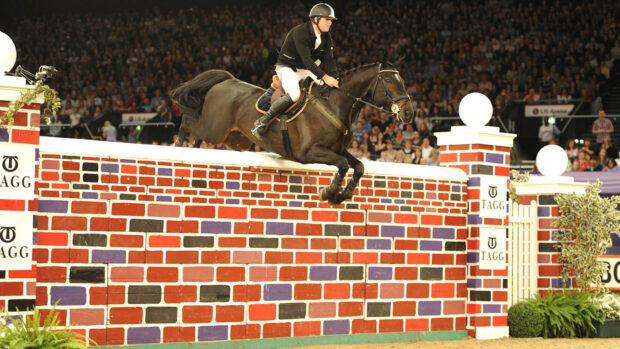A woman has been sentenced for claiming a thermal imaging device for horses could detect breast cancer in humans – and selling training packages to equine businesses citing a college that didn’t exist.
Sophie Gent, of Uppingham Road, Leicester, pleaded guilty to fraud by false representation regarding the selling of the equine equipment, and for engaging in an unfair commercial practice regarding the breast cancer screening claims.
The 31-year-old was sentenced on 2 Match at Stoke-on-Trent Crown Court. She was ordered to complete 140 hours of community service and pay £3,800 costs.
The conviction came as a result of a five-year investigation by Staffordshire County Council’s trading standards team, which had warned Gent in October 2014 that the VET2000 digital infra-red thermal imaging (DITI) machine was not suitable for use on humans.
Gent, who operated from sole trader clinics, claimed on her website that ‘DITI’ could detect breast abnormalities between eight and 20 years earlier than a mammogram could.
Businesses invested about £20,000 each to set up screening clinics and despite the trading standards warning, Gent continued to advertise her services.
William Bradford, 81, of Keates Road, Cambridge, was given a conditional discharge for 12 months and ordered to pay £2,950 costs. He had pleaded guilty to falsely representing that a VET2000 could be used on humans, while he was training delegates to use the devices for breast cancer screening and other medical uses.
Gent would arrange for those who had bought the VET2000 to be “medically trained” by Bradford, who had the UK sales rights for the VET2000 from its US manufacturers.
The court heard Bradford acknowledged in later correspondence that the VET2000 was “basically unsuitable for human applications” for technical reasons not relevant when screening animals.
Gent and another of her businesses, Syncthermology Ltd, also pleaded guilty to fraud by false representation. In selling equine businesses training packages, at about £5,000, “with Gent’s consent or connivance”, it was claimed the training courses were developed, and screenings carried out by, the British College of Veterinary Thermography (BCVT). The court heard this organisation did not exist.
Miranda Heynes, one of those who invested in the equine equipment, described Gent as “a complete con artist, but when you meet her, it’s like butter wouldn’t melt”.
She told H&H she had paid £4,000 plus VAT to join the company, then had to pay a monthly fee, costs to use the camera and fees to vets to interpret the scans.
“What’s sad is that the technology is brilliant, and I loved what I did but the business wasn’t there. She’d sold it on the basis that it was, but it wasn’t,” Miranda said.
“She was very clever. The more I tried to talk to other people in the company, the more she put the shutters up between us; she didn’t like it.”
A separate case in county court between Miranda and Gent found against the latter, who Miranda said owed her some £13,800 pounds, and agreed to pay her back at £200 per month.
“I don’t think I’ll see any of it,” Miranda said. “And other people have lost everything.”
Gent told H&H trading standards brought 16 charges against her and all but two were “successfully defended”. A trading standards spokesman said that while Gent and Bradford had initially pleaded not guilty to all the charges, they admitted those above on the day of the trial, and the others were dropped.
Gent said: “I did identify some areas in some of my marketing material – I was new to business, aged 21, and I made a mistake in a piece of marketing. It got withdrawn.
“I take full responsibility but have never repeated that mistake and I’ve really learned from it.”
Gent said she “apologises profusely”, and that “being 21, I was slightly naïve”. She blamed a “typo” on her website for the claim the screening could detect cancer so much earlier, and that she relied on information provided by the manufacturer.
Regarding the fake association, she said she had hoped to develop it but there were reasons why she could not, and that she was “over-zealous”.
Continues below…

‘You feel violated’: Dealer’s warning over selling scam
The seller said unknown scammers have been using her videos to try to sell horses they do not own

Con artist posed as top showjumper to swindle £280k from victims
The "deceptive and malicious" scammer — whose victims included his own girlfriend — has been jailed

Subscribe to Horse & Hound magazine today – and enjoy unlimited website access all year round
Syncthermology was fined a total of £10,000 and ordered to pay £4,600 costs.
Gill Heath, Staffordshire County Council’s cabinet member for communities, said: “This was an unusual and particularly challenging case for our trading standards team, but we’re pleased with the outcome.
“Not only did Gent dupe businesses into buying equipment that didn’t do its job, she put people’s lives at risk by falsely claiming to businesses and to customers at her own clinic that the equipment was suitable for breast screening for cancer when it clearly wasn’t.
“The really worrying thing about this case is that we have no idea how many people may have used these screening services, and now may be uncertain about the state of their health.”
Would you like to read Horse & Hound’s independent journalism without any adverts? Join Horse & Hound Plus today and you can read all articles on HorseandHound.co.uk completely ad-free





